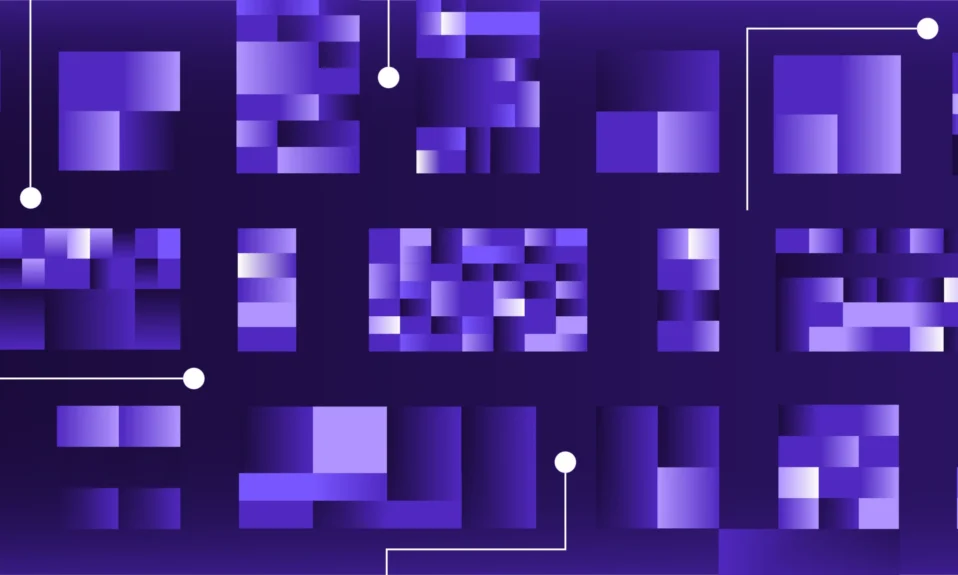As per a report from BusinessWire, Global Smart Contracts Market to Surge to USD 73.8 Billion by 2030, Fuelled by Digital Transformation and AI integration in BFSI Sector.

In the realm of blockchain technology, smart contracts have emerged as a groundbreaking innovation that promises to revolutionize various industries and redefine the way we conduct transactions. These self-executing, programmable contracts have the potential to automate complex processes, eliminate intermediaries, enhance security, and increase transparency. In this comprehensive guide, we will delve deep into the world of smart contracts, exploring what they are, how they work, their applications, advantages, challenges, and the future prospects of this transformative technology.
Definition and Origin
Smart contracts are self-executing contracts with the terms of the agreement directly written into code. A blockchain stores and executes them, ensuring that the contract’s rules are automatically enforced without the need for intermediaries or third parties. The concept of smart contracts was first proposed by computer scientist and cryptographer Nick Szabo in 1994. However, it wasn’t until the advent of blockchain technology that the idea became a practical reality.
How Do Smart Contracts Work?
Smart contracts work by using programming code to define the rules and conditions of an agreement. A blockchain stores these rules, and it acts as a decentralized and tamper-resistant ledger. When the predefined conditions are met, the contract automatically executes, and the blockchain records the associated transactions.
Key Characteristics
- Immutable: Smart contracts, once deployed on the blockchain, remain immutable and cannot be altered or tampered with, providing a high level of security and trust.
- Decentralized: Smart contracts operate on a distributed network of computers, eliminating the need for a central authority or intermediary.
- Trustless: Users can trust the code and the blockchain network to execute the contract correctly, reducing the need for trust in a counterparty.
- Automatic Execution: Smart contracts execute automatically when conditions are met, reducing the risk of human error.
- Transparency: All contract terms and transactions are recorded on the blockchain and are visible to all participants, enhancing transparency.
The Technology Behind Smart Contracts
Blockchain Technology
Blockchain technology forms the foundation of smart contracts. It is a distributed ledger that records all transactions across a network of computers in a secure and transparent manner.The blockchain contains a set of transactions in each block, and once we add it, it links to the previous block, creating a chain of blocks. This immutability and transparency make blockchain an ideal platform for executing smart contracts.
Ethereum: The Pioneering Platform
Created by Vitalik Buterin in 2015, Ethereum is the most well-known and widely used platform for developing and deploying smart contracts. It introduced the concept of a decentralized, Turing-complete virtual machine called the Ethereum Virtual Machine (EVM), which allows developers to write complex smart contracts using programming languages like Solidity.
Programming Languages
Typically, developers write smart contracts in programming languages that are compatible with the blockchain platform they deploy them on – for Ethereum, Solidity is the most commonly used language. Other blockchain platforms may support different languages, such as Vyper, LLL, and Chaincode.
Use Cases and Applications
Finance and Banking
Smart contracts have the potential to revolutionize the financial industry by automating processes such as lending, insurance, and asset management. DeFi (Decentralized Finance) platforms use smart contracts to create financial services without the need for traditional banks.
Supply Chain Management
In supply chain management, smart contracts can improve transparency and traceability. They enable real-time tracking of goods and automate payment and validation processes, reducing fraud and errors.
Healthcare
Smart contracts in healthcare can securely manage patient data, automate insurance claims, and ensure the integrity of medical records. This can streamline administrative processes and enhance patient care.
Real Estate
Real estate transactions involve numerous intermediaries and paperwork. These contracts can automate property transfers, escrow services, and even rental agreements, reducing costs and delays.
Legal Industry
In the legal industry, smart contracts can automate legal agreements, wills, and property disputes, ensuring that the terms are executed precisely as specified in the code.
Entertainment and Gaming
Smart contracts are used in the entertainment industry to facilitate royalty payments to artists and content creators, ensuring fair compensation based on predetermined rules.
Advantages of Smart Contracts
Transparency and Trust
One of the key advantages of smart contracts is the transparency they offer. Since all contract terms and transactions are recorded on the blockchain and can be viewed by all participants, there is a high level of trust in the system.
Cost-Efficiency
Smart contracts eliminate the need for intermediaries, reducing transaction costs. This can result in significant cost savings, especially in industries that rely heavily on intermediaries, such as finance and real estate.
Security
Blockchain technology’s immutability and decentralization make smart contracts highly secure. Once a contract is deployed, it cannot be altered or tampered with, reducing the risk of fraud.
Accuracy and Speed
When predefined conditions are met, smart contracts automatically execute, reducing the potential for human error and increasing the speed of transactions.
Reduced Intermediaries
The removal of intermediaries simplifies and speeds up processes. It also reduces the risk of disputes and delays caused by third-party involvement.
Challenges and Limitations
Legal and Regulatory Challenges
The legal status of smart contracts varies from one jurisdiction to another, and regulations are still evolving. This can create uncertainty and legal challenges for users and developers.
Scalability
Blockchain networks, including Ethereum, face scalability challenges when it comes to processing a large number of transactions simultaneously. This can result in slow transaction times and high fees during periods of high demand.
Security Risks
Although blockchain is considered secure, bugs and vulnerabilities in the code can still make smart contracts vulnerable. Hacks and exploits have occurred in the past, resulting in significant financial losses.
Immutability
The immutability of smart contracts can be both an advantage and a limitation. If a contract contains errors or if the conditions change, it can be challenging to make amendments.
User Adoption
For widespread adoption of smart contracts, users need to become familiar with the technology and its benefits. Overcoming the learning curve and building trust in the system may take time.
Real-world Examples of Smart Contracts
DeFi Platforms
DeFi platforms like Compound and Aave use smart contracts to provide lending and borrowing services, enabling users to earn interest on their cryptocurrency holdings without the need for traditional banks.
Supply Chain Projects
Companies like IBM and Walmart have implemented blockchain-based supply chain solutions that use smart contracts to track the movement of goods from production to delivery, ensuring authenticity and quality.
Healthcare Initiatives
In the healthcare sector, startups like Medicalchain use smart contracts to manage patient data securely and facilitate telemedicine appointments, improving healthcare access and data security.
Real Estate Transactions
Platforms like Propy and Ubitquity use smart contracts to automate real estate transactions, making property purchases and transfers faster and more efficient.
Legal Contracts
Blockchain-based platforms like OpenLaw and Agrello enable the creation and execution of legal contracts using smart contracts, streamlining legal processes.
The Future of Smart Contracts
Integration with IoT and AI
The integration of smart contracts with Internet of Things (IoT) devices and artificial intelligence (AI) systems will enable automated interactions between physical and digital assets, creating new possibilities in various industries.
Cross-Chain Compatibility
Developers are working on solutions to make smart contracts compatible across different blockchain platforms, allowing for more extensive use and interoperability.
Enhanced Privacy Features
Privacy-focused smart contracts, such as zero-knowledge proofs and confidential transactions, will provide options for businesses and individuals who require confidentiality.
Standardization and Interoperability
Efforts are underway to standardize smart contract development and improve interoperability between different blockchain networks, making it easier for developers to create and deploy smart contracts.
Mainstream Adoption
As awareness and understanding of smart contracts grow, we can expect to see more industries adopting this technology to improve efficiency, reduce costs, and enhance security.
Conclusion
Smart contracts, by automating processes, increasing transparency, and reducing the need for intermediaries, are poised to revolutionize various industries. While numerous advantages are offered, addressing challenges such as legal and regulatory issues, scalability, and security risks is necessary for widespread adoption.
The future of smart contracts looks promising, with ongoing advancements in technology and increased interest from businesses and developers. While the ecosystems continue to evolve, they will likely reshape how agreements and transactions are conducted on a global scale, becoming an integral part of the digital economy. Whether you’re a developer, business leader, or simply curious about the potential of this technology, understanding smart contracts is essential as we embark on this transformative journey into the future of decentralized and automated agreements.






